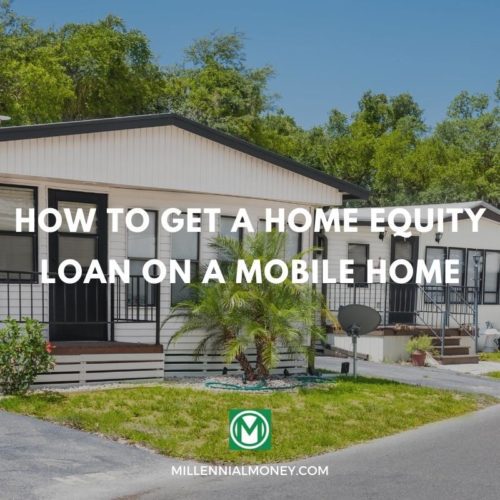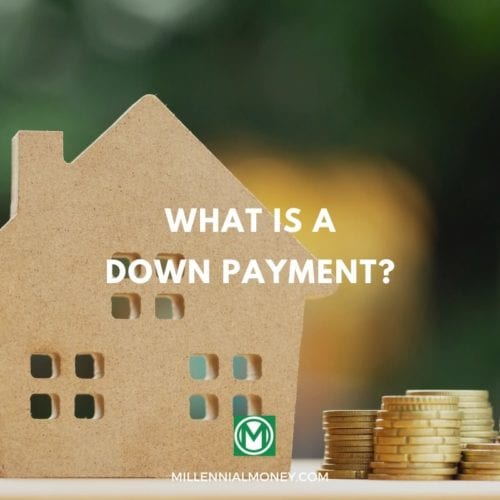Refinancing your mortgage is often one of the best single strategies to improve your overall financial situation. Think about it – not only do you have an opportunity to lower your interest rate and monthly payment, but often to reduce the term of your mortgage as well.
No matter how you do it, there’s real potential to save thousands of dollars by doing the best mortgage refinance.
You’ll help your cause if you work with one of the best refinance mortgage companies, and each lender has its niche that it provides the best mortgage refinances for.
10 Best Mortgage Refinance Lenders
Here are the best mortgage refinance companies in 2025:
- 🏆 Rocket Mortgage: Best Online Lender
- Better.com: Best for No Origination Fees
- LoanDepot: Best for Flexible Refinance Loans
- SoFi: Best Jumbo Lender
- Chase: Best Lender with Full-Service Banking
- New American Funding: Best Bad Credit Lender
- Navy Federal Credit Union: Best Credit Union for Military Families
- Flagstar Bank: Best Discounts
- PNC Bank: Best Online Application
- First Horizon Bank: Best Tools & Resources
1. Rocket Mortgage
Rocket Mortgage is the online lending platform for Quicken Loans, which has grown to become the single largest mortgage loan originator in the US. If you make an application for a mortgage through Rocket Mortgage, you’ll be working with Quicken Loans.
Rocket Mortgage is a full-service mortgage lender that can handle refinancing all types of mortgages, including conventional, Jumbo, FHA, VA, and even USDA loans. You can apply for an interest rate reduction refinance loan (IRRRL), a reduced loan term, cash-out, or refinance for home renovations. You’ll have your choice of fixed-rate mortgages for adjustable-rate mortgages (ARMs).
Rocket Mortgage was the highest-ranked non-military lender on the J.D. Power 2022 U.S. Mortgage Origination Satisfaction Survey, with a score of 750 out of 1,000 points.
Pros
- Quick, easy online application process
- Get pre-approved in less than 10 minutes
- Can be done entirely from home
- Most financial accounts can be accessed online
- Dedicated customer support
Cons
- Only has offices in four cities
- No secondary financing options, like home equity lines
- Rates are always the best
2. Better.com
Online-only lender Better.com does not charge loan origination fees. Even the standard 1 percent fee will add $2,000 to the cost of a $200,000 loan. So skipping this fee could enhance your savings when you close your refinance loan.
Better.com has straight refinance loans, but you couldn’t use this lender to secure a second mortgage loan.
Unlike some online lenders, Better.com works exclusively online.
You can get customer support 24/7, and navigating this lender’s site should be simple for anyone. Just click “get started” and answer some questions. You can get a quick pre-approval for your mortgage refinance completely online.
Your interaction with the site could lead you to a fixed or adjustable-rate refinance loan, a VA loan, an FHA-backed mortgage refinance, or even a new Jumbo loan. Better.com is not authorized for USDA-backed loans.
Pros
- Loan officers provide tech support but don’t work on commission
- Intuitive, dynamic questionnaire filters loan options
- No origination fees
Cons
- No USDA loans
- No local branches
3. LoanDepot
LoanDepot’s market share has grown steadily over the past 10 years, partly because this direct lender has flexible refinance loans.
LoanDepot provides fixed-rate home equity loans with up to 15-year repayments and home equity lines of credit.
LoanDepot is an online lender but you can also visit one of its 200+ branch offices throughout the nation.
One of LoanDepot’s best features is its lifetime guarantee — an unusual term in the mortgage industry. This guarantee means you could refinance your mortgage a second time without paying appraisal or lender fees if you weren’t happy with the first refinance.
You can choose from a selection of VA, HARP, fixed-rate conventional, ARM, FHA, and jumbo loans.
Pros
- Variety of refinancing products
- Available in all 50 states
- A lifetime guarantee could save on future refinances
Cons
- Doesn’t display rates online
- No USDA loans
4. SoFi
SoFi is, of course, best known for student loan refinance. But in recent years, they’ve expanded into different types of loans and financial products, including personal loans and mortgages for homebuyers.
On the mortgage front, SoFi offers both conventional and jumbo loans, but not VA and FHA mortgages and other types of programs.
But the Jumbo program is especially noteworthy. You can take a home loan of up to $3 million on either a purchase or refinance in all states except Hawaii. And you only need 10% down on a purchase.
And even if your equity (or down payment) is less than 20%, no private mortgage insurance is required. If you have slim equity in your home, that will save you a big chunk on your monthly payments.
SoFi scores an “A“ rating with the Better Business Bureau, too.
Pros
- No PMI on Jumbo loans with as little as 10% down
- $3 million loan amounts
- Offers several types of loans
Cons
- No FHA, VA, or USDA loans
- You must have good or excellent credit
5. Chase
Chase is the largest bank in the US and one of the largest in the world. If you prefer to have your mortgage at the same institution where you bank, Chase is a prime option.
As the largest bank in the country, Chase has a network of branches in most states and operates on a national level. Not only do they offer virtually every type of mortgage loan product, but they’re also strong in secondary financing, including second mortgages and home equity lines of credit.
As a full-service bank, they also offer all types of banking services. That includes checking and deposit accounts, the full range of loan products, investments, commercial banking, and even international operations.
The company has an “A” rating with the Better Business Bureau. Meanwhile, Chase was the second-ranked mortgage lender in the J.D. Power 2022 U.S. Mortgage Origination Satisfaction Survey.
Pros
- Full-service bank
- Operates nationwide
- Generous secondary financing options
- Discounts to existing Chase customers
- Strong customer support
Cons
- High fees, including origination and rate lock fees
- Requires you to speak to an advisor
6. New American Funding
New American Funding is one of the largest mortgage lenders in the country, operating in all states except Hawaii. They provide all types of mortgage financing, including conventional, Jumbo, FHA, VA, USDA, and reverse mortgages.
It’s not so much that New American Funding specifically issues loans for borrowers with impaired credit, but more that they use a hands-on approach. That is, they primarily underwrite loans manually, rather than relying entirely on automated underwriting, which is entirely credit score based.
They’re more likely to accept alternative credit methods and have a strong emphasis on working with Latino applicants. In addition, they have home loans specifically designed for the self-employed, as well as fixer-upper properties.
If your situation is at all out-of-the-box, this is a company worth considering.
Like many of the other mortgage lenders on this list, New American Funding has an “A+” rating with the Better Business Bureau and its been accredited since 2004.
Pros
- Offers all loan types, including secondary financing
- Hands-on approach to maximize loan approval
- Specializes in more challenging loan types
Cons
- Not available in Hawaii
- High origination fees
7. Navy Federal Credit Union
Navy Federal Credit Union is the largest credit union in the country, with 12 million members. Membership is exclusive to active duty service members, veterans, Department of Defense employees and contractors, and their families.
If you’re eligible for membership and you want to refinance your mortgage, Navy Federal has solid options, both for refinancing and tapping into your equity with a second mortgage.
This lender offers affordable refinance rates, like most credit unions, but you’d need to start an application to see a loan estimate. Shoppers can get pre-approved with a rate quote online within a few minutes.
Unsurprisingly, Navy Federal’s refinance loans suit the needs of military families. This lender excels with VA loans and refinances. And, the credit union has a wider than usual variety of adjustable-rate mortgages which tend to save money in the first few years of the loan. Since military families move so often, they could benefit from these loans when they sell.
And, Navy Federal’s underwriters consider alternative forms of credit like your banking history with them. This could make a huge difference for credit-challenged borrowers.
Pros
- Good loan variety
- Competitive rates
- Online friendly
- Military friendly
Cons
- Membership requirement
- Rates are not available before the application
8. Flagstar Bank
Flagstar Bank is a subsidiary of New York Community Bancorp (NYCB). Headquartered in Michigan, the bank has 395 branches across 9 states and originates some loans nationwide.
As a full-service bank, Flagstar also offers personal, business, and commercial banking products, along with personal loans and investment products.
Flagstar provides conventional, USDA, FHA, VA, jumbo, and ARM loans. You can refinance with Flagstar or get a home equity line of credit nationwide. The bank also offers home equity loans, but they’re only available to residents of California, Wisconsin, Michigan, Indiana, and Ohio.
If you live in one of these states, you can go to a local branch for assistance and apply in person or online. Applicants in other states need to apply fully online.
The bank has a minimum credit score requirement of 680, but it’s willing to consider alternative credit like timely rent payments.
Flagstar is our pick for discounts. You can save on your mortgage if you’re a first responder, veteran, or active military member. You could also get a discount through your employer if they have a relationship with the bank.
Pros
- Offers several mortgage types
- Online loan status tracking
- Lets you apply fully online
Cons
- Home equity loans limited by location
- Above-average origination fees
9. PNC Bank
PNC Bank has been around for more than 170 years. It has over 2,600 branches in 29 states and the District of Columbia and operates nationwide.
PNC has all the financial products you would expect to find at a large national bank—savings and checking accounts, credit cards, loans, and investment accounts.
PNC has an extensive lineup of mortgage types, including conventional loans, USDA loans, FHA loans, and VA loans. The bank offers cash-out refinances, rate-and-term refinances, and second mortgages. If you want a HELOC, you can choose from fixed-rate and adjustable-rate home equity lines of credit.
We’re impressed with PNC Bank’s online tools and educational resources, but especially its online application process. While you have the option to apply in person in some states, you can apply completely online and get approved within 30 minutes of submitting your application.
Pros
- Quick approval process
- Helpful online calculators
- Lenient credit score requirements
Cons
- No renovation loans
- Only has branches in 29 states
10. First Horizon Bank
First Horizon Bank was founded in 1864 as the first national bank in Memphis. Now it’s one of the largest banks in the South, with a network of around 417 banking centers across twelve states, including Alabama, Arkansas, Florida, Georgia, Louisiana, Mississippi, Missouri, New York, North Carolina, South Carolina, Tennessee, and Texas.
The bank prides itself on using local lenders who customize prices to meet their customers’ needs.
First Horizon has an impressive lineup of adjustable-rate, conventional fixed-rate loans, VA, and USDA loans, offering mortgages of up to $4 million. It also provides special home financing for medical professionals.
If you want to crunch some numbers before settling on a refinancing option, First Horizon is worth considering. The bank’s website has informational blog posts about refinancing options to help you make an informed decision. More than that, it provides several mortgage calculators, including a refinancing calculator and a HELOC calculator that can streamline your research.
You need to work with one of First Horizon’s loan originators for mortgages and refinances. You can find a loan specialist in your area on the bank’s website and fill out a short contact form to be contacted by a representative.
©2023 First Horizon Bank, NMLS# 472329. All loans subject to approval, including credit approval. Restrictions may apply. Other programs are available. Conditions subject to change without notice. Equal Housing Lender. Member FDIC.
Pros
- Several mortgage calculators
- Up to $4 million mortgages
- Reasonable credit requirements
Cons
- No online application
- Only has branches in 12 states
Compare Rates with First Horizon Bank
Reasons to Refinance Your Mortgage
A lower interest rate and monthly payment are only one of several reasons to refinance your mortgage. Others to consider include:
- Taking a shorter loan term. Refinancing from a 30-year loan to a 15 year can chop your loan repayment in half, saving you tens of thousands of dollars in interest.
- Going from a variable rate loan to a fixed rate. Variable rates can be attractive at the very beginning, but they have the potential to rise dramatically. Refinancing into a fixed rate will give you a predictable rate and monthly mortgage payment.
- Removing private mortgage insurance. If you have PMI on your existing mortgage, refinancing is one way to get rid of it.
- Removing a cosigner from your loan. When it comes to mortgages, refinancing is generally the only way to release a cosigner from the loan.
- Taking cash-out. Though I don’t recommend this strategy, it can make sense if you want to use the proceeds for home improvements.
What Do I Need to Refinance My Mortgage
If refinancing makes financial sense based on the considerations above, take note of the requirements for mortgage refinancing:
- Credit score minimums: Qualifying credit scores can vary depending on the type of mortgage you have, but many lenders require a credit score of 620 or higher for conventional and FHA loan refinances. The higher your credit score is, the more likely you are to get approved for mortgage refinancing and secure lower interest rates.
- Home equity: To get the lowest mortgage interest rates, experts recommend having at least 20% equity in your home before you refinance. This can help you eliminate private mortgage insurance (PMI).
- Loan-to-value ratio: Your loan-to-value, or LTV, is the loan amount divided by your home’s value. Most lenders allow an LTV of 80%, meaning you can borrow 80% of your home’s equity.
- Debt-to-income ratio: Your score isn’t the only part of your credit report mortgage lenders consider. They’ll also look at your debt-to-income ratio (DTI), your monthly debts divided by your monthly income, to determine eligibility. Most lenders look for a DTI of 43% or lower.
Frequently Asked Questions
Is a cash-out refinance a bad idea?
A lot of homeowners with substantial home equity come to see that equity as a way to pay off high-interest credit cards or use the funds for a major upcoming expense, like a wedding or even a big vacation. On the surface, it can make sense since mortgage debt typically carries the lowest interest rates available.
The risk, however, is that any time you take cash out on a refinance, you’re increasing the indebtedness on your home. If you do a cash-out refinance and increase the mortgage on your home from 60% of the value to 80%, you’ll have less cushion should property values in your area begin to fall.
But on a more practical level, doing a cash-out refinance moves the clock on your mortgage back to zero. You’ll be starting with a brand-new loan – maybe even one that’s larger than the original mortgage – then committing to paying it off all over again.
It’s also worth noting that any time you do a refinance of any type, there are closing costs involved. Those typically range between 2% and 3% of the new loan amount.
How does a reverse mortgage work?
A reverse mortgage is a type of refinance in which you take equity out of your home but aren’t required to make monthly payments. They’re actually a form of FHA mortgages, formally called Home Equity Conversion Mortgages (HECMs). They’re designed specifically for homeowners, age 62 and over.
With a reverse mortgage, you borrow the equity out of your home and can take it either as a lump sum, periodic distributions, or even monthly payments. You can even set up a line of credit to access funds as you need it. No repayment is required until either the borrower dies or the securing home is sold. And even though it’s a special program, it is a refinance and includes similar closing costs and fees to any other type of refinance.
Is it cheaper to refinance with my current lender?
Any time you refinance your mortgage, you owe it to yourself to shop around. You should certainly consider any offer by your current lender, but only against offers from the competition.
It may be that your current lender will offer certain benefits, like discounted fees. But that’s not always the case.
One of the complications in the mortgage industry is that while some companies originate loans, acting as lenders, others service them. That’s why mortgages are frequently sold and resold after closing. It’s possible that your current mortgage servicer doesn’t even offer loan origination, and won’t be able to refinance your loan at all.
But even if they can, it’s always best to shop between lenders. Never assume your current lender is giving you the best deal. Seeing you as a captive client, they may provide you with something less than the best deal. That’s why it’s so important to shop.
Should I Refinance My Mortgage?
In the end, a mortgage is too large a financial transaction to take lightly. Even though shopping and applying can be an uncomfortable situation, the stakes are too high to do otherwise.
Do your homework, check with several lenders, and choose the one offering the best deal for you. Hopefully, you won’t have to do it for a long time after that, and you’ll reap the benefits for many years.





No comments yet. Add your own